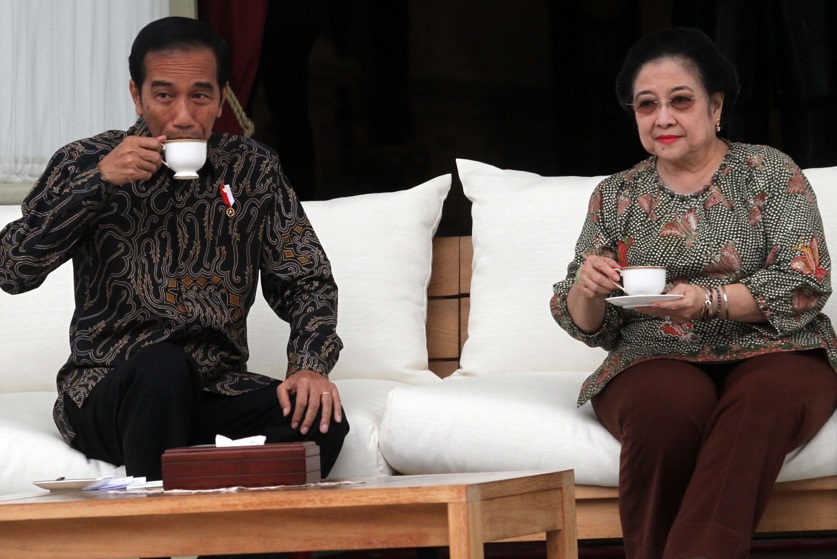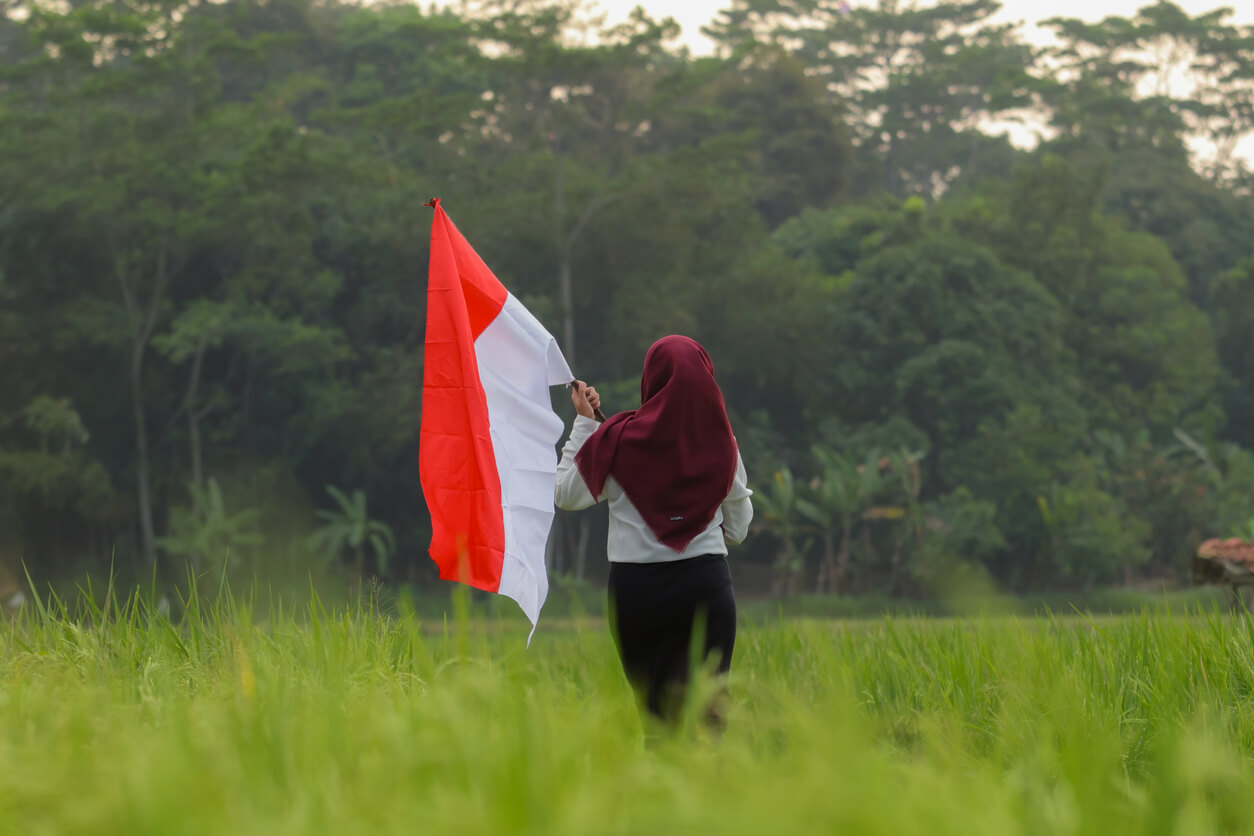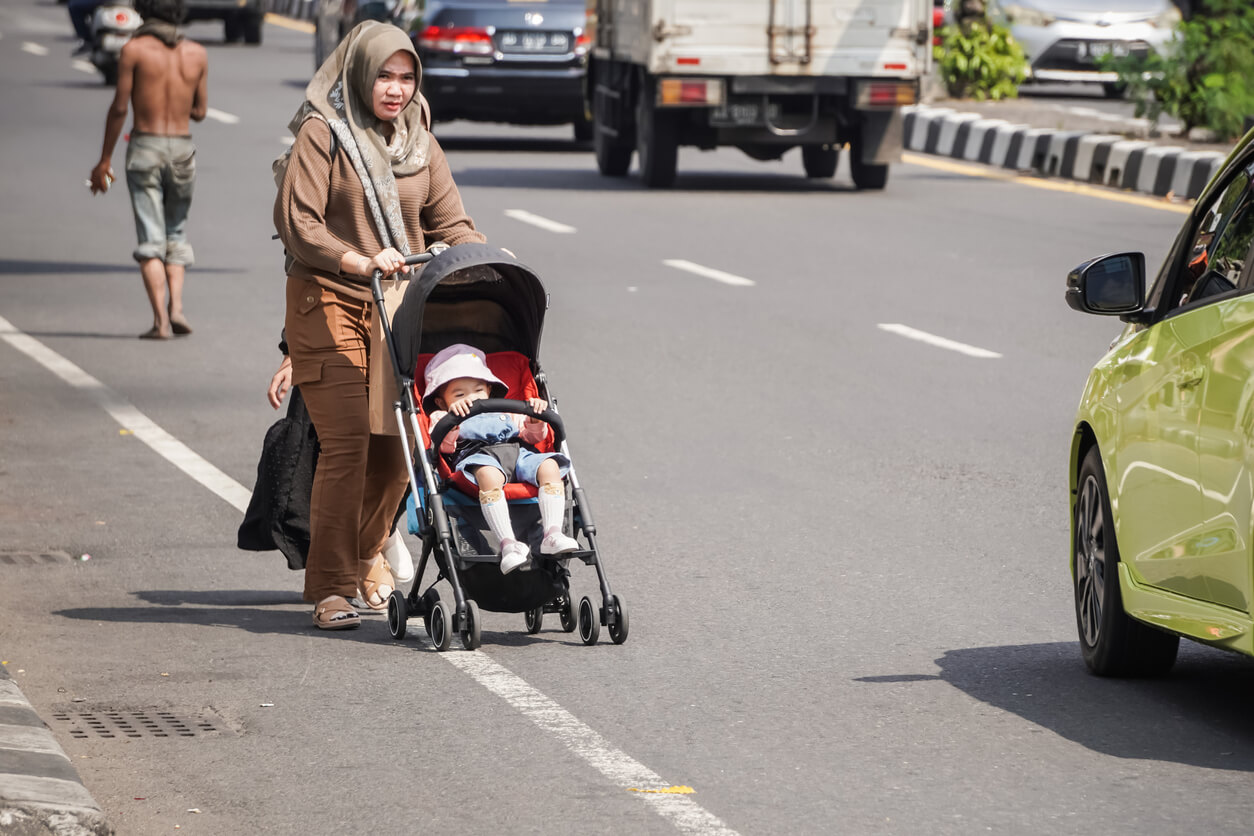The 32-year rule of the Suharto New Order regime (1966-98) socially engineered gender roles in the service of authoritarian rule. The democratic reforms post-1998 have included empowerment of women, who enjoy some gains in political participation and personal autonomy while facing a backlash from conservative male voices that fight to maintain a male prerogative.
Suharto’s New Order (1965-98) reshaped the political culture of Indonesia, including refashioning gender relations as an instrument of power. Defining the social role of women as wives and mothers was a central ideological pillar of the authoritarian regime that ruled for 32 years. Its “familist” ideology, in which the state supported the role of men as household heads with dominance over their wives and children, “naturalised” the strongman rule of the leader, a tactic typical of authoritarian regimes. Legislative and policy prescriptions enforced this gender order. For example, legislation enshrined the male household head; women were obliged to join corporatist state organisations that enforced models of wifedom; and contraception was only available to married women and with their husbands’ permission. State-sanctioned gender roles were performative, on display at all major public ceremonies.1
The roots of this state gender regime penetrated deep into Indonesian society. Men’s status as household heads gave them power over their wives, including the right to violence. Many state programmes and benefits flowed to household heads, denying women direct access. References to “traditional women’s roles” in Indonesia invoke the “citizen mother”, socially engineered by the New Order. In actuality, the hundreds of constituent cultures of the Indonesian nation show extraordinary variety in the ways economic and political power, value, and responsibility are distributed between men and women. These actual traditions are a resource (as well as sometimes a challenge) for contemporary advocates of gender equity.2
Indonesia has a long tradition of political concerns for women’s rights.3 For example, colonial-era women’s groups campaigned for marriage reform, and labour legislation in the early republic granted women workers rights to breastfeeding, maternity, and menstruation leave, provisions that have survived recent amendment of labour law.
Pemberdayaan (empowerment) was a catch cry of post-Suharto democratisation, termed Reformasi, and this encompassed empowerment of women. Women’s rights were an important theme of the 1998 pro-democracy movement. The first street demonstrations in the popular movement that ended Suharto’s rule were by groups of women protesting the negative effects of the Asian Financial Crisis on their ability to feed their families.
Democratic reform of the authoritarian system was immediate on Suharto’s fall. His successor (his vice president, BJ Habibie) implemented legislative reform authorising direct elections for president, and for legislatures at national, provincial, and district levels.
Women activists have aspired to increase their voice in these directly elected parliaments. But in the first direct elections in 1999, only 8.8 per cent of seats in the national parliament were won by women. This led to demands for the 2003 law on elections to adopt a gender quota, a requirement that women comprise at least 30 per cent of candidates on party lists for the multi-member electorates in national, district, and provincial parliaments.
The results of the 2024 DPR elections (not yet officially released) are projected to increase the number of women representatives to 22.1 per cent, or 128 seats out of 580. This figure is 1.6 per cent higher than the 2019 elections, with 20.5 per cent women’s representation (118/575). The results of the 2024 DPR elections are the highest achievement of women’s representation in Indonesia’s electoral history.4
Reformasi also included “big bang” decentralisation. Political authority had been heavily concentrated at the centre in Suharto’s New Order regime, but it was shifted to the district level, where parliaments and (since 2005) governors and district heads have been directly elected. Gender quotas have been applied in elections for district and provincial legislatures since 2004 but gains have been slower than at national level. In 2009, women on average won 16 per cent of seats in provincial parliaments and 9 per cent at the district and municipal levels. The 2014 elections saw the proportion of women elected to provincial parliaments decline to 14.6 per cent, while there was an increase to an average of 14.2 per cent at district and municipal levels. But progress in women’s political representation differs across the nation. For example, in the most recent elections (2024), women in the eastern province of Nusa Tenggara Timur (NTT) made great inroads into parliamentary representation. At the national level, women’s parliamentary representation from NTT rose from zero in 2014 to 23.07 per cent in 2019 (in line with the national figure). At the provincial level, there was a gradual rise from 5.45 per cent in 2009 to 9.23 per cent in 2014, 18.46 per cent in 2019, and 25 per cent in 2024.

Indonesia has had only one female president (Megawati Sukarnoputri 2001-4) and it is noteworthy that, in the 2024 elections, none of the three candidate pairs (president and vice-president) included a woman.
Other institutional innovations in Reformasi set the stage for future democratic growth and greater gender equity. Two new institutions that have been critical to women’s rights claims were the Commission on Women’s Rights (KOMNAS Perempuan) and the National Commission on Violence against Women. They worked with legislators to pass Law 23 in 2004, outlawing domestic violence. In addition to the incremental success of women in achieving positions in formal politics, these new institutions provide avenues for championing women’s rights.
Soon after Reformasi, women activists proposed a revision to the 1974 Marriage Law, aiming to ban polygyny and to raise the age of marriage for girls from 16 to 18. They also demanded the removal of the clause establishing men as household heads.
Men have not readily relinquished the domestic and public power that they held during the New Order, seeking redress from the newly established (2003) Constitutional Court. It has become an important site for contestations between advocates of women’s rights and attempts to retain male controls on women, including challenges using Islamist rhetoric; women challenging aspects of Marriage Law such as age at marriage (wanting stronger checks on child marriage) or men’s rights to polygyny; and men challenging aspects of that law that they see as circumscribing their prerogatives. The case against raising the minimum marriage age saw the court accept religious arguments concerning defining adulthood, a clear example of the mobilisation of Islamist ideology to challenge women’s rights. This is surprising in a polity that is not an Islamic state. The Constitutional Court has considered arguments based on Islamic textual exegesis. The Marriage Act of 2019 eventually brought the minimum age of marriage for women to 19, the same as for men.

The Suharto regime had attempted to strictly control Islam as a source of political rivalry, banning Islamic political parties at the time of the 1980s Iranian clerics’ revolution. The greater political freedoms of Reformasi allowed for an efflorescence of religious voices, or political arguments in Islamic guise, including challenges to the 1974 secular marriage law noted above. A centrepiece of New Order social engineering, inter alia it restricted rights to polygyny.
But rights claims based on religion have been a two-way street.5 Indonesian women’s rights activists have been drawn to debates on Islamic feminism and have taken on textual interpretation to challenge men using Islam to argue for patriarchal values.
Decentralisation has empowered district governments and brought risks and rewards to women. This fundamental political reform promised to bring power holders closer to the public and there is evidence that local women’s groups have been able to press this advantage to secure favourable results at local level. Newly empowered local politicians cynically exploited Islamist ideology to win elections, many passing local regulations purportedly based on Sharia law. Their most common attribute is restriction of women’s freedom of movement: night curfews (which were a threat to working women), and dress codes, including compulsory head covering. These Islamist regulations expressed sentiments similar to the New Order, defining women’s primary role, as Muslims and as citizens, as wives and mothers under male control and in the home.
However, aspects of New Order economic policy, in its quest for Pembangunan (development at any cost) had a contradictory effect and propelled women out of the home. Light industrial factories that invested in Indonesia preferentially employed women. The desire for remittances from overseas labour migration resulted in Indonesian women filling niches in global labour markets (domestic servants in the Middle East and East Asia), leaving husbands behind to care for the household and bring up the children. By the early 1980s, stories were emerging of abuse and ill treatment of the women in the Middle east. The government responded weakly to demands to regulate the trade, but eventually a ban was enacted in 2015, in response to a bout of abuse revelations. However, the industry was resumed in 2021.
Decentralisation has posed risks to nationally legislated services benefiting women, such as the national family-planning programme that provided contraception to women across the archipelago. This is no longer a national programme, coming under the authority of local government. The ability of women to control the number and timing of their children is fundamental to gender equity. While the continuing decline in Indonesia’s fertility rate indicates that a smaller family size is the “new normal”, contraception is still restricted to married couples. This is a positive aspect of the Suharto-era legacy for women’s rights.

The New Order expanded educational opportunities for both boys and girls. However, continued gains in women’s education and ongoing economic growth have not resulted in women achieving a higher share of formal sector jobs. A significant gender gap persists in formal sector participation and women bear the responsibility of unpaid care work6 However, this “big picture” does not mean that there have not been any changes. In the mining town of Sorowako Sulawesi, for example, the only formal employment offered to women in the late 1970s (when I began research there) was as nurses, secretaries, or domestics in the mining company. Now, in Sorowako, women work in all areas of the company, including as heavy machine operators, apprentices, engineers, and doctors. But the nature of the community significantly facilitates this, as rural women workers can frequently rely on female relatives to provide childcare, whereas urban working women often cannot.
Some New Order policies, such as fertility control and universal education, have had lasting positive impacts for women. Others, with negative impacts such as assumptions about women’s familial roles, are proving hard to dislodge. The “one step forward, two steps back” nature of changes in gender relations extends to the rights of transgender citizens. The papers presented at the annual Indonesia Update held in Canberra in 20227 collectively showed how hard it is to dislodge the seeds planted in the years of gender ideology supporting authoritarian rule. But although the homogenising ideology of the New Order persists, the state inscription of gendered power appears to be slowly dissolving.8
About the Author
 Kathryn Robinson is an anthropologist of Indonesia researching gender relations, Muslim societies, and the social consequences of mining. Currently Professor Emerita at the College of Asia and the Pacific at the Australian National University and the GEDSI advisor on KONEKSI, an Australian programme of assistance to the Indonesian knowledge sector.
Kathryn Robinson is an anthropologist of Indonesia researching gender relations, Muslim societies, and the social consequences of mining. Currently Professor Emerita at the College of Asia and the Pacific at the Australian National University and the GEDSI advisor on KONEKSI, an Australian programme of assistance to the Indonesian knowledge sector.
References
- Robinson, Kathryn. 2009 Gender, Islam and Democracy in Indonesia, Routledge, London and New York
- Suryakusuma, Julia. 2012 “Is state Ibuism still relevant?”, Inside Indonesia. https://www.insideindonesia.org/is-state-ibuism-still-relevant
- Robinson, Kathryn. 2018. “Kartini and ‘Kartini’. On the many meanings of Hari Kartini, Indonesia’s annual celebration of its most famous colonial-era feminist writer”, New Mandala. https://www.newmandala.org/kartini-and-kartini/
- Official results have not yet been released by the Electoral Commission, but this is an estimate from an NGO monitoring the elections. Perludem. 2024. “Political Women’s Resilience is a Factor in Increasing Women’s Representation in the House of Representatives in the 2024 Election Results”, press release, https://perludem.org/en/2024/03/29/resilience-of-political-women-is-a-factor-in-increasing-womens-representation-in-the-house-of-representatives-in-the-2024-elections/
- Robinson, Kathryn. 2017. “Female Ulama voice a vision for Indonesia’s future”, New Mandala. https://www.newmandala.org/female-ulama-voice-vision-indonesias-future/
- Cameron, Lisa. 2020. “Why Indonesia’s wealth isn’t translating into Jobs for women”, https://theconversation.com/why-indonesias-wealth-isnt-translating-into-jobs-for-women-132770
- Bexley, Angie, Sarag Xuw Dong and Diahhadi Setonyaluri (eds). 2023. Gender Equality and Diversity in Indonesia: Identifying Progress and Challenges. Singapore:I SEAS Publishing
- Robinson, Kathryn. 2023. Empowering women’s rights in Indonesia, East Asia Forum, https://eastasiaforum.org/2023/01/11/empowering-womens-rights-in-indonesia/








